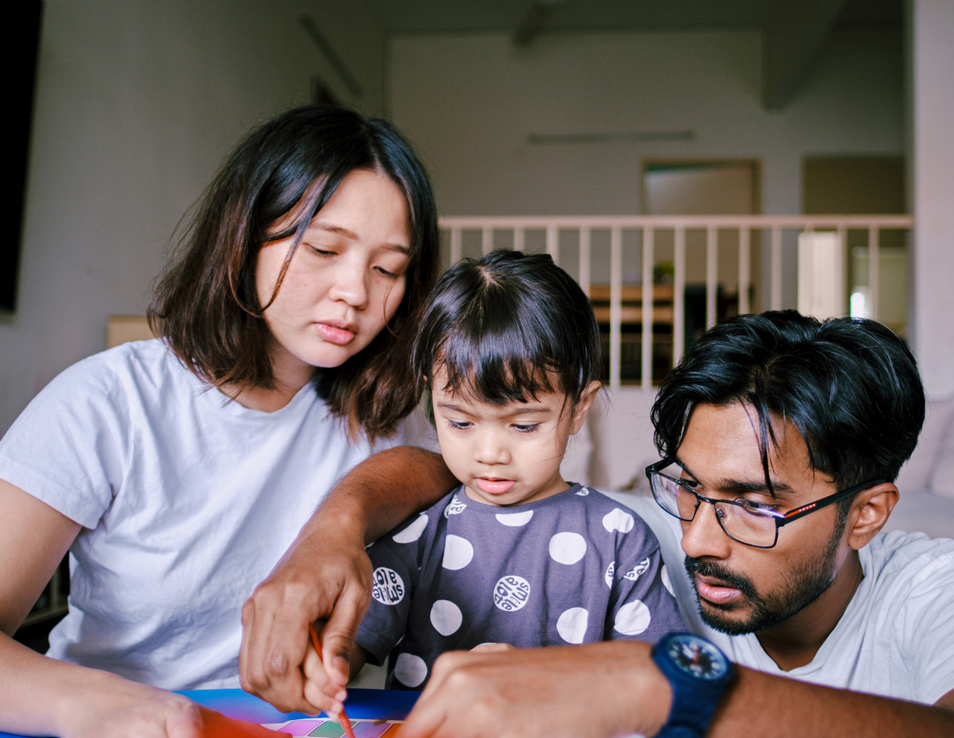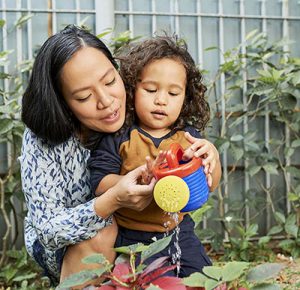The journey to identify that your child has a developmental delay or disability can be very emotional and challenging.
Here are five steps to help you get the support your family and your child need:
1. Including your child in childcare, kindergarten or school
Children with developmental delays and disability can get extra help at childcare, kindergarten, and school. The process starts with meetings between you and your child’s teachers and educators to share information.
The childcare centre, kindergarten or school are responsible for applying for extra funding if needed.
They are also responsible for getting the equipment your child might need, and for staff to undertake training and professional learning on how best to support your child.
It’s good to make sure you are meeting regularly and that you are working as a team to support your child.
Useful links
Getting started at childcare and kindergarten
Student Support Groups
2. NDIS
The NDIS is an Australian Government program that supports children and adults with disability. An NDIS plan is funding that you can spend directly on things that will help you support your child, such as speech therapy or occupational therapy.
If your child is under six years old, no formal diagnosis is needed for an NDIS plan. Start by talking to your maternal child health nurse or your GP. They will explain the process of working out what your child needs and help you to apply for the NDIS.
Navigating the NDIS can be confusing, but you will learn as you go.
Useful links
Accessing NDIS support for children aged 0 to 8
Accessing NDIS support for children aged 9 and older
Finding a therapist
3. Financial assistance
The Australian Government provides a Carer Allowance and a Carer Payment.
The Carer Allowance is easier to get. It is approximately $140 a fortnight and the funds go to the primary carer. You will need your GP to help you fill out the application form.
In addition to the $140 a fortnight, your child will be eligible for a Health Care Card. You will also be eligible for a Victorian Government Carer Card which means you can get discounts on things such as public transport.
The Carer Payment is a larger amount of financial support for those caring full-time for a child or adult with disability with a high level of support needs.
Useful link
4. Counselling
The start of the disability journey can be a lot of work and involve a lot of emotions. There may be times you need to talk to someone other than friends or family about your circumstances.
Counselling provides a safe space to explore your feelings and challenges.
In Victoria, there is a free counselling service called Family Relationship Support for Carers. You can see them yourself, or you can see them as a family. They can provide counselling or mediation and they can also help you work out how siblings are feeling.
Useful link
Counselling and support for families and siblings
5. Connecting with others
Many families say the best support comes from connecting with other families. They may have already found out how the NDIS works and how to get the right support at childcare, kindergarten, and school, and give you some insights. You can also share some of the joys and challenges of watching your child grow and develop with other families.
You can connect with other families through Facebook groups, in-person catch-ups and support groups that are diagnosis-specific.
Peer support for families can be the lifeline of understanding and connection. From shared challenges to triumphs, a group can be a great emotional support and help you feel less isolated.
Finally, remember that you are a family and that it’s important to enjoy everyday activities like going to the playground and celebrating your child’s strengths.






